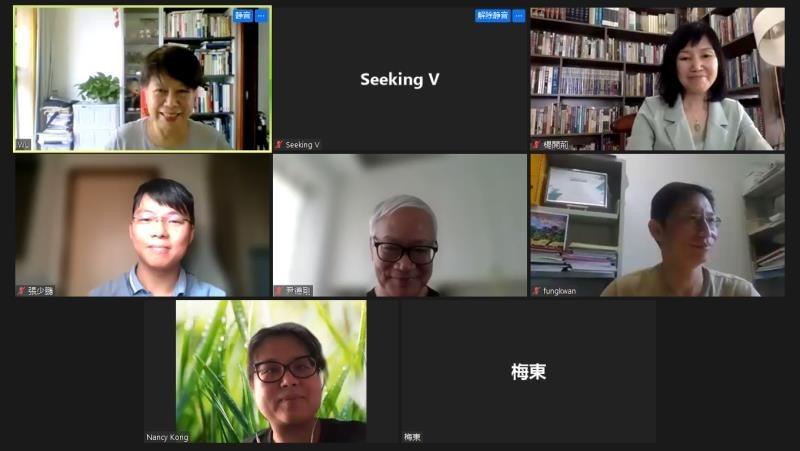 Participants discuss, via video link, the far-reaching significance of the Hengqin Guangdong-Macao deep cooperation zone to Macao on August 7, 2021. The symposium was organized the Asia-Pacific Communication Exchange Association. (PHOTO PROVIDED TO CHINA DAILY)
Participants discuss, via video link, the far-reaching significance of the Hengqin Guangdong-Macao deep cooperation zone to Macao on August 7, 2021. The symposium was organized the Asia-Pacific Communication Exchange Association. (PHOTO PROVIDED TO CHINA DAILY)
Local scholars and professionals anticipated a promising prospect for Macao’s economic development amid hopeful expectation for the announcement of the master plan of Hengqin Guangdong-Macao Deep Cooperation Zone. The plan, expected to be announced soon, aims to enhance the industrial diversification of Macao's economy, and build a high-level open new system of integration with Macao.
The zone can complement Macao's shortage of land, provide necessary resources to safeguard the economic diversification and expand a market for various industries such as cultural and creative industry, tourism, arts and media.
Participants in the special symposium, organized by the Asia-Pacific Communication Exchange Association on Saturday, agreed that the zone is of far-reaching significance to Macao. As a tiny-city economy, Macao cannot sustain on its domestic demand and depends highly on external environments. The COVID-19 pandemic makes Macao people recognize once again how deeply it relies on the support of the Chinese mainland. Macao can stand firmly with challenges of the world only with the backing of the mainland. Therefore, the establishment of the zone is viewed as another grand opportunity for Macao to take off again following its successful story of opening-up of gaming concessions 20 years ago,
The zone can complement Macao's shortage of land, provide necessary resources to safeguard the economic diversification and expand a market for various industries such as cultural and creative industry, tourism, arts and media. It will also provide more space and opportunities for younger generations in Macao to tap into their genuine talents and cultivate wider interests.
In addition, there is a potential for cultural integration while maintaining cultural uniqueness of Macao, Helen Ieong, president of Macau Association of Social Sciences said. History and culture of the various cities in the Guangdong-Hong Kong-Macao Great Bay Area have many commonalities as well as distinctions. A platform of cultural heritage is necessary in the zone to make young people in Macao understand the historical roots and at the meantime promote cultural diversity and prosperity.
Participants in the symposium included Yin Degang, president of the Chinese Debate League and head coach of the debate team of University of Macau, Kwan Fung, professor with Department of Economics, University of Macau, and executive director of MASS, Mei Dong, chief editor of Hong Kong and Macau Weekly and executive director of Intercity Media, and Cheong Sio-pang, executive editor of Macau “Mad” Art Magazine, and doctoral student of University of Chinese Academy of Social Sciences.
Participants discussed a number of issues related with deep cooperation, such as the development of cultural and media industries, deep cooperation and cultural integration, relations between economic diversification and the advantageous industry, how to move forward with tourism first, and Macao youth in the GBA. Discussants hoped that the deep cooperation zone will be implemented soon, and Macao will enter a new stage of development.


